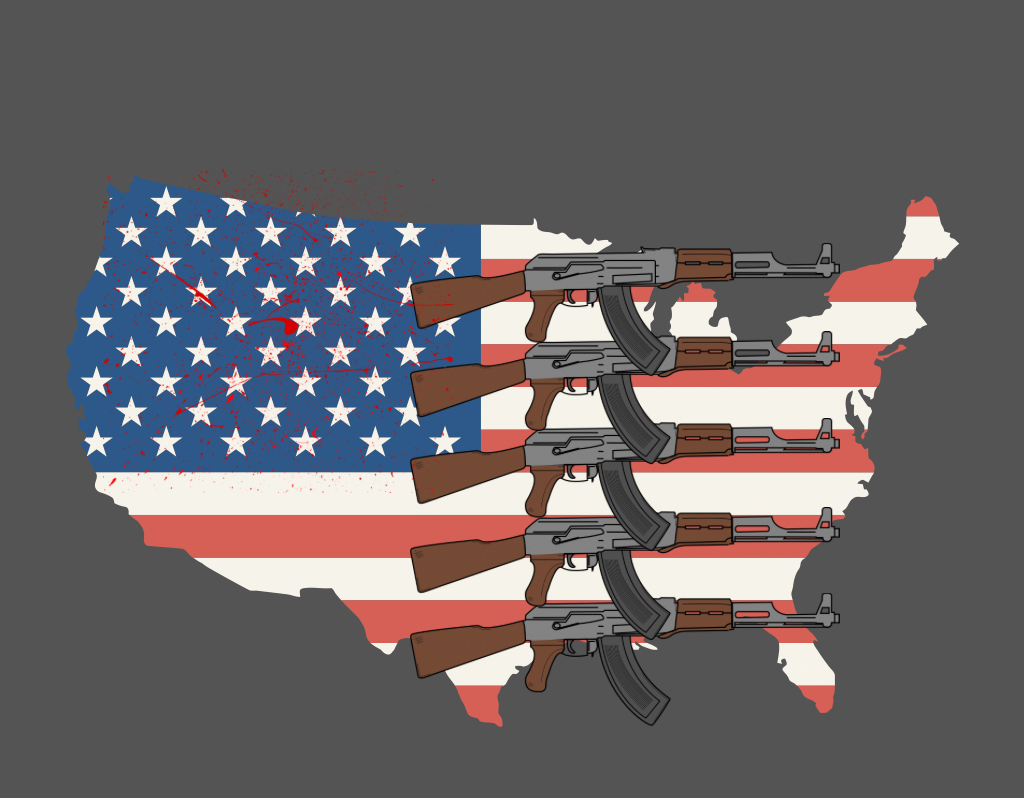With a harrowing 565 shootings in 2023 so far, the violence epidemic in America continues to grow each year. Although it is tempting to say that gun violence stems from mental health, the truth is much more complex.
By using the phrase “humans kill, not guns”, citizens tend to link gun violence with critical illnesses like schizophrenia and depression. Understanding the broad spectrum of mental disorders includes the realization that the vast majority of these individuals are not prone to violence. The reality is that psychiatric problems only account for a small fraction of perpetrators: approximately 5% of mass shootings.
Researchers for the Columbia Mass Murder database have found that most severe acts of violence are committed by people without any illness. Still, when a person with a psychotic illness commits a mass murder, they are more likely to use other methods, instead of firearms.
Sophomore Kailee Wilson has noticed these misconceptions with how the media broadcasts news with a single-story. “News anchors and media generally blame mass shootings and acts of violence on these illnesses- especially school shooters. Rarely do you see any criticism of the gun laws that are being enacted in America,” Wilson explained.
The United States, with its high prevalence of gun ownership, has witnessed a disproportionate number of mass shootings compared to countries with stricter gun control. This trend has become increasingly prominent as years pass. Correspondingly, researchers found that states with looser gun restrictions are more prone to shootings.
Although the effects of psychiatric disorders are minimal, they are not inconsequential.
Mental health is strongly linked to risks of suicide by firearms, rather than homicide. More than half of gun-related fatalities occur due to self-inflicted violence.
Junior and member of the trap team Bennet Teitle emphasized the need for people to acknowledge this issue. “Gun violence entails both homicides and suicides. It is important to make a distinction between causes and effects. A greater availability to guns results in both mass shootings and suicide rates to soar,” Teitle expressed.
“Mental health resources should not be overlooked, even if they aren’t the main cause of mass shootings: people suffering psychologically still need help,” Teitle continued.
A comprehensive approach that addresses both mental health and gun availability is needed to effectively tackle this issue. Implementing sensible gun control measures can contribute to reducing the event of another disaster. Simultaneously, it is crucial to enhance services for those who are ill and improve access to treatment.









